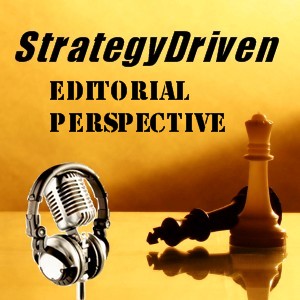Nuclear Power is Clean, Safe, and Reliable… But Can It Be Competitive?
For over 30 years, U.S. nuclear plants provided clean, safe and reliable electricity. Yet in the past 3 years, twelve reactors have been slated for early retirement and another dozen are at risk. Can nuclear plants be operated competitively in today’s market?
An evolving energy market, led by cheap natural gas and subsidized renewable generation, threatens the long-term financial viability of America’s remaining nuclear power plants. Since 2013, utility executives have announced the early retirement of twelve reactors and Wall Street estimates reveal another dozen to be at risk; raising the question: Can nuclear plants be operated competitively in today’s market?
Over the past three decades, the U.S. Nuclear Industry achieved unprecedented levels of safety and reliability; providing almost 20 percent of all domestic electricity and generating 63 percent of America’s carbon-free power. Unlike other clean energy sources, nuclear power is available during all weather conditions, offers price stability, and on-site long-term fuel supplies.
Competition from cheap natural gas and subsidized renewable generation combined with rising operations and maintenance costs stemming from a slew of new regulations and aging equipment challenge the long-term financial viability of nuclear power plants. In its recent news release, Exelon cited a combined loss of $800 million in the past seven years – an average of about $57 million per station per year – as the reason for shuttering its Clinton and Quad Cities nuclear plants.
In an effort to improve the financial viability of the remaining nuclear fleet, industry executives launched the Delivering the Nuclear Promise initiative; challenging employees and vendors to identify innovative ways to improve efficiency, reduce costs, and raise revenues while maintaining operational safety and reliability. Responding to this call, StrategyDriven Enterprises identified 29 near-term cost reduction opportunities potentially saving utilities $10+ million per station in annual operations and maintenance costs.
“Our team of seasoned nuclear executives sought out and adapted contemporary business practices for the nuclear environment,” explains Nathan Ives, StrategyDriven’s Chief Executive Officer. “The result is an initial set of organizational, process, and technology changes that preserve operational safety and reliability while at the same time dramatically reduce costs.”
StrategyDriven’s cost reduction initiatives and identification method are captured in Four Overlooked Controllable Costs that could save nuclear plants from early retirement. The document highlights 29 initiatives to reduce costs in the areas of Human Capital Management, Information Technology, Supply Chain / Inventory Management, and Oversight. StrategyDriven experience reveals many of these cost reductions to be implementable within 180 days and to possess similar payback periods.
U.S. Energy Secretary Ernest Moniz recently indicated that retiring nuclear power plants would make it more difficult for the U.S. to achieve its climate change goals.
“The idea is we are supposed to be adding zero-carbon sources, not subtracting or simply replacing by building to just kind of tread water,” Moniz said at a May symposium the department organized to discuss the industry’s economic prospects. “I think very few understand that nothing else comes close [to nuclear],” he added.
Four Overlooked Controllable Costs is being distributed to StrategyDriven’s clients, including some of the world’s largest nuclear utility operators. The white paper is available at: www.StrategyDriven.com/DNP.


 StrategyDriven Editorial Perspective podcasts examine the unnecessary marketplace uncertainty created by today’s headline events and the actions business leaders should take to ensure their organizations succeed under these circumstances.
StrategyDriven Editorial Perspective podcasts examine the unnecessary marketplace uncertainty created by today’s headline events and the actions business leaders should take to ensure their organizations succeed under these circumstances.